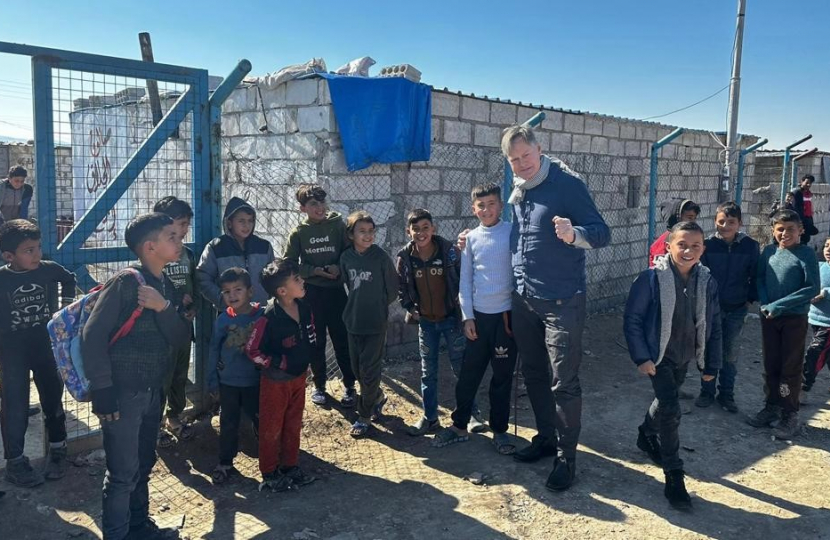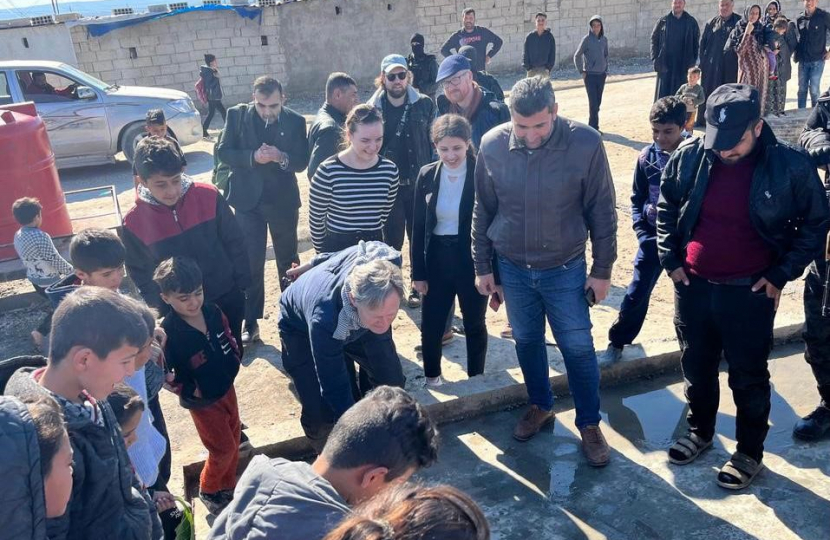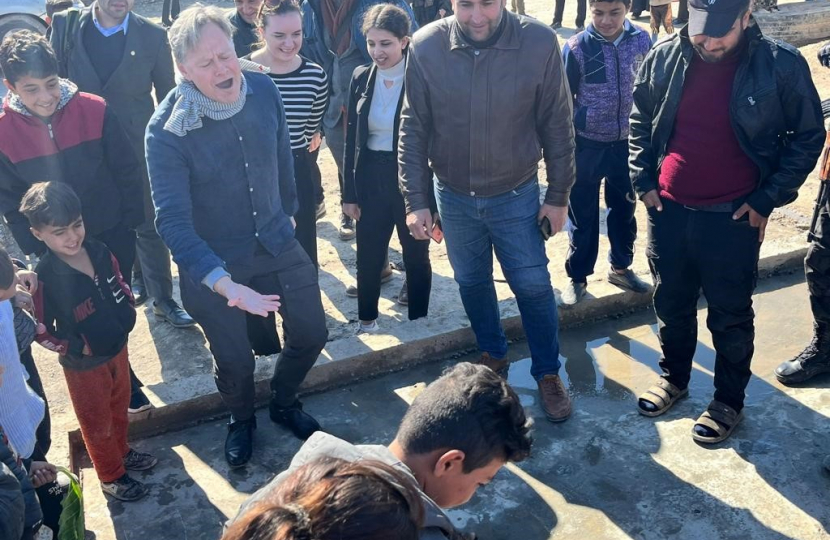Matthew has travelled to the Autonomous Administration of North and East Syria to witness the physical threats being faced by the local population and internally displaced persons (IDPs). The area, also known as Rojava, is controlled by the Syrian Defence Force (SDF) who are a military organisation opposed by the Syrian Army, the Government of Turkey and Daesh but supported by US/UK coalition forces. During the invasion of Iraq, SDF troops fought against Saddam Hossein and in recent years have defended the region against murderous violence from Daesh, defeating them militarily.
The earthquake in Gaziantep, over the border in Turkey, has caused significant problems in the region as the refusal by Turkey to open borders and the reticence of the Syrian Government to allow humanitarian supplies to enter from the western part of Syria has caused additional suffering. Disgracefully, missile drone attacks have continued with the killing of an SDF solider on Sunday 12th February in Kobane.
Matthew also visited the Washokani IDP camp in the Al-Hasakeh governorate. This is a temporary ‘home’ to over 16,000 people who have lost their properties in parts of Syria as a result of the conflict between Government forces and Daesh. Living in almost 2,000 shelters, people exist mainly on the money they borrow from friends and relatives elsewhere or from assistance provided by private relief organisations. This is because the international community does not provide resources to IDPs, only international refugees. Of most concern is the more than 11,000 Daesh prisoners and their 56,000 dependents who are being held in detention in the region. These people came to fight with Daesh from over 50 different countries around the world but the administration in Rojava does not have the capacity to prosecute these prisoners because it is not a state but a region of Syria and as such is not recognised under international law.
The diversity of the region shows that a governance system can exist amongst those of different religions. Most ethnic Kurdish and Arab people adhere to Sunni Islam, while ethnic Assyrian people are generally Syriac Orthodox, Chaldean Catholic, Syriac Catholic or adherents of the Assyrian Church in the East while there is also Yazidis and secular groups.
Matthew said: “While the international community is watching the conflict in Ukraine, malign actions are occurring under the cover of the earthquake in Gaziatep. Military action is being waged against people in the Rojava region of Syria who are also struggling with the earthquake, displaced people and the constant threat from Daesh. There have been several military attacks on the prisons in attempts to free the Daesh prisoners so they can resume violence. The international community must address the problem of captured Daesh fighters or they will break out to resume fighting or return to their countries of origin to commit terrorist acts.”




